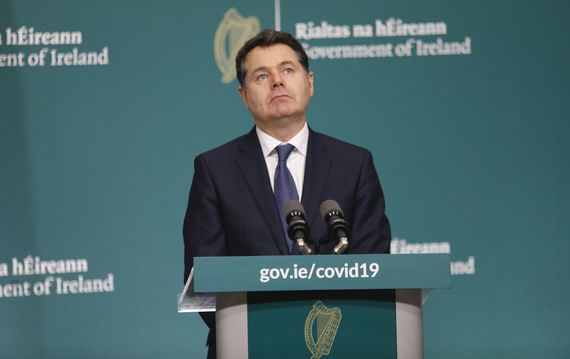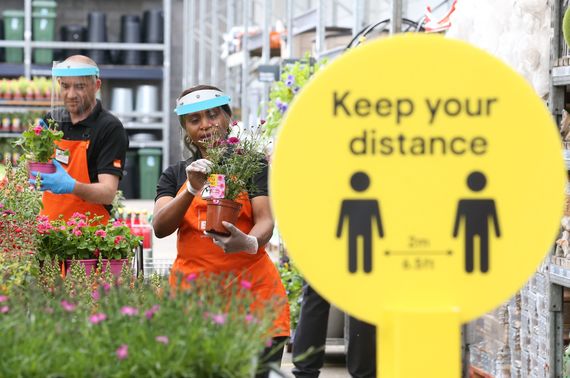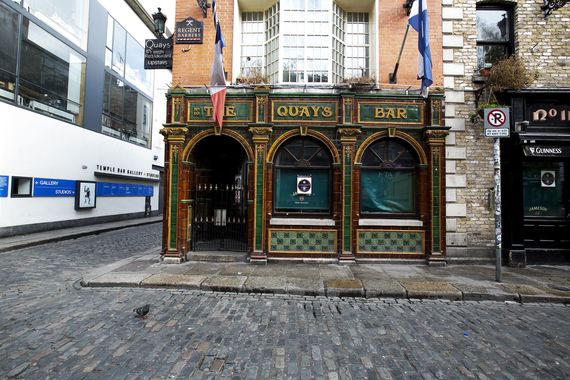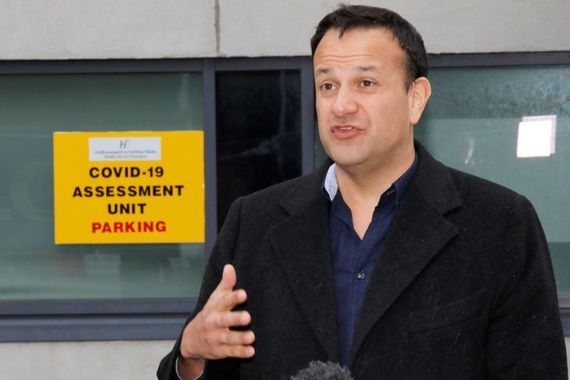As Ireland and the world faces a historic recession we question whether Ireland's COVID payments are far too generous, how they'll be rolled back, and if Ireland's workforce will ever be the same.
When the COVID lockdown started here on March 24, the government had to make huge decisions very quickly. Top of the list was the need to support people financially so they would obey the stay-at-home instruction. That was seen as essential so that the virus spread would be suppressed and our hospitals would not be overwhelmed, a real fear at the time as we watched what was happening in Italy.
The key to getting people to accept stay at home was to make the financial support as generous as possible and to introduce it immediately. With the economy virtually shut down overnight, most people had no jobs to go to and no income. If stay-at-home was to work they had to be supported, whatever the cost.
Read more: COVID: Ireland faces worst recession in history
In a speech last week the Minister for Finance Paschal Donohoe said that this decision by the government was made "at breakneck speed." There was no time for delay, no time to set up a complicated system that could relate payments to what someone had been earning or to their individual circumstances. The solution was to give everyone whose job had been lost a €350 a week pandemic unemployment payment without any questions. Given the need to act without delay that was the right thing to do at the time, but it has caused serious problems that now have to be addressed.

Minister for Finance Paschal Donohoe.
Read more: Varadkar defends picnic with friends at Phoenix Park
Last week it was revealed that nearly 40 percent of the people receiving the pandemic payment are better off now than they were when they were working. Around 580,000 people are receiving the payment, so that means over 200,000 of them are getting more than they earned when they were working. And some businesses that are preparing to reopen in the next few weeks are now finding that their former employees don't want to come back to work.
A key anomaly in the scheme is that it treats part-time workers (including students who work) the same as those with full-time jobs. Many of the 200,000 workers who are now better off were part-timers on minimum wage (€10 an hour) and typically would have been doing 20 to 30 hours a week. Why go back to work when you're getting more money if you stay away?
The minimal checking of applications for the pandemic payment -- to avoid delay in getting money out to people -- has also caused problems. There have been numerous stories of workers inventing jobs that they have now "lost" to get the payment.
Students doing a few hours at weekends in a bar or cafe have inflated this into a job and applied for and are now getting the €350 a week. Happy days! One even managed to get six applications approved before he was caught!

Life begins to return to some kind of normal in Ireland as some stores open.
The system is so loose it is wide open to fraud and unsurprisingly has attracted the attention of those whose main career is playing the system to get state handouts. At the other end of the scale, there are those who have lost jobs but have enough assets or savings to support themselves -- they also get the payment because there is no means test.
As well as these difficulties, there is the main problem that it is costing the state several hundred million euro a week, which is not sustainable for more than a limited period. And the pandemic unemployment payment is not the only problem. Around half of the workforce here -- 1.2 million people -- are now on some kind of state payment to support them through the COVID crisis.
Over half a million are on the pandemic payment. Close to half a million are on the wage subsidy scheme, under which the state pays up to 85 percent of their wages (up to a max of €410 a week) if their employer keeps them on. And the rest were unemployed before the COVID lockdown started and are on unemployment benefit (now called job seekers allowance here) of €203 a week.

The Quay's bar, in Temple Bar, normally thronging with visitors, shutdown.
Read more: Ireland making steady progress against COVID-19
The rationale for the wage subsidy scheme was that it would allow companies to get back in business quickly when the COVID crisis abates since their workers would still be there. That made sense when we were still expecting a rapid-firing up of the economy in a V-shaped recovery.
But the reality now seems to be that a number of businesses here -- in hospitality, tourism, retail and other sectors -- may never open again. Keeping their workers on the payroll indefinitely with state support may be pointless in the end.
Needless to say, those who were unemployed before the lockdown started and are on the normal jobseekers €203 payment are not happy. All around them they see other people who are now unemployed getting €350 a week. How can that be fair, they ask.
All of this means that the various state supports introduced "at breakneck speed" to get us through the COVID crisis are now being questioned. For a start, we can't afford to go on doing this much longer. Instead of having a €2 billion surplus in the state budget this year, we are now heading for a €30 billion deficit.
Our recovery after the crash a decade ago has been wiped out and we face enormous challenges in the months ahead. We can't afford to waste any state money now or in the future.
For these reasons both Donohoe and Taoiseach Leo Varadkar last week signaled that we have to review what we are doing. The pandemic payment was due to finish on June 8. Even though we now have the COVID spread here well under control with our new infection and death numbers continuing to stay very low, that is not going to happen.

Taoiseach Leo Varadkar.
Read more: Study shows how physical distancing could affect pubs in Ireland
Instead, government sources are saying the payment will continue until we reach the final stage of lifting the lockdown in August when, all going well, the economy will be fully open again. At that point, the payment will be tapered off and people who don't have a job will be shifted on to the normal €203 a week job seekers allowance.
In retrospect, the decision to make the pandemic payment €350 a week now seems foolishly generous. It's not clear why it was necessary to set it so much above the usual unemployment benefit. It's now going to be very difficult to unwind, and Sinn Fein and the socialist members of the Dáil (Parliament) are already demanding that it be retained indefinitely without any reductions -- another example of left-wing populism.
It's interesting that the same debate is now going on in the U.S. where the federal pandemic unemployment compensation payment gives an additional $600 per week to those receiving unemployment benefits, in many cases bringing the total to $978 a week, a level more than twice as high as the pandemic payment here.
Of course, when the crisis hit both here and in the U.S. there was an immediate need to support people as much as possible. But it's now clear that we're in this for the long haul.
Some economists are predicting that 40 percent of jobs are never coming back, in retail, hospitality, and so on. With that in mind, we all have to adjust financial supports to what is realistically possible in the medium to long term.
It's a grim prospect and it's potentially even worse here as a hard Brexit looks more likely at the end of this year, a prospect which could add even more misery in Ireland.
Read more: Matt Damon's "fairytale" lockdown stay in Ireland comes to an end



Comments